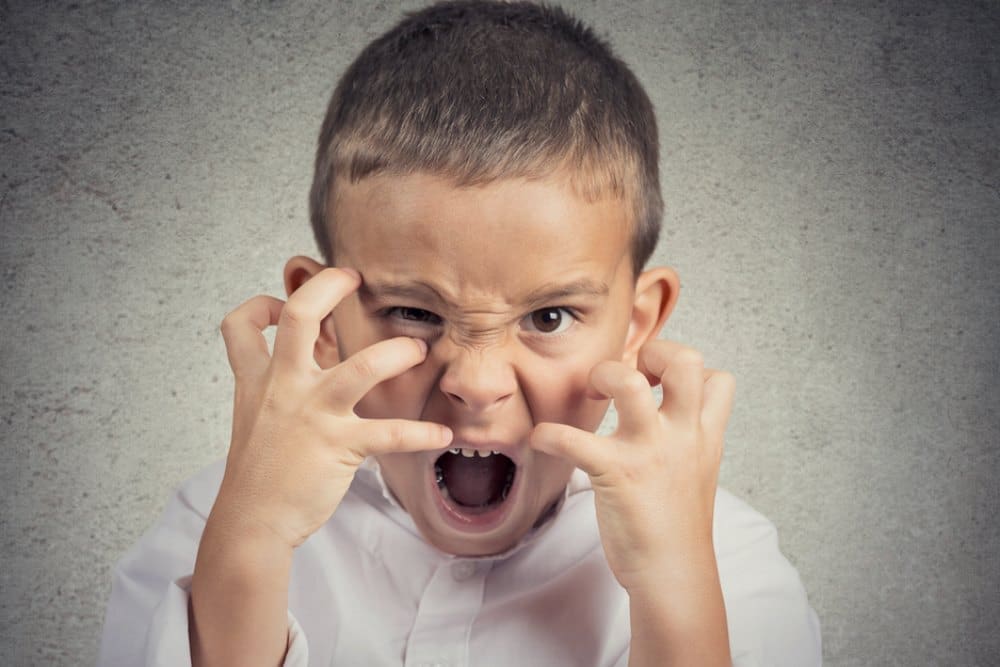Are you concerned that your child is “out of control” when they are: acting aggressively, talking over others, grabbing, have difficulty taking turns or simply doing things you have asked them not to? Many parents get frustrated by their child’s lack of self or impulse control, especially when their child knows the rules or the consequences of breaking them.
Often times it is just that children just don’t have the skills to manage strong impulses. Children begin to develop these skills between ages 2 and 5, but their impulses are not well managed because their “rational brain” that allows for planning, foresight and considering others is not fully developed. For most young children this age self-control is nonexistent, limited at best, and is a skill that will take years to master. Children’s ability to regulate for themselves will not become evident until they begin to approach the ripe old age of seven.
A child’s temperament, or innate way of reacting to the world, can also make him or her more impulsive than others. Children who are easily distressed and become very agitated may need different treatment than children who are a little more “chill” in order to become capable of self-control. Research findings have shown that kids with higher levels of impulse control develop better academic skills over time, have bigger vocabularies and higher test scores in both math and literacy. Unfortunately on the other side of the spectrum, children with below average impulse control are more likely to suffer from anxiety & depression, become obese, smoke and dependent on alcohol or drugs. But self-control is not static, and like muscle strength can be developed over time.
So what can you do to help your child who is currently “out of control”?
-
Acknowledge, empathize, or validate.
Simply acknowledge that in many cases their lack of impulse control is developmentally appropriate and empathize or validate their feelings. When your child is upset- perhaps they were having a fun time at the park and don’t want to leave when you need them to – start by letting them know that you understand by simply saying something like, “Its so hard to leave the park” or “Oh man, it sounds like you really want to stay at the park!” It is important to connect and let your child know that you understand and accept their feelings first before you say or do anything else.
2. Use Emotion Coaching.
Use an “Emotion Coaching” or problem solving approach with your child when there is a big emotion or behavior. Research has shown that children with emotion coaching parents recover from stressful situations faster, have fewer negative emotions, and develop the skills needed to manage challenges on their own. In order to be an emotion coaching parent you must empathize, help your child to get clear about what they actually wanted or needed, acknowledge their feelings/needs while setting limits on behavior and guide them through a brainstorming and problem solving process.
3. Give your child a break.
Give your child a break! All humans have limited amounts of self-control. And we use up the energy we have for self-control throughout the day. If we continue to ask children to repeatedly perform tasks or follow our requests they will become less and less successful. If there is homework and housework that needs to get done be mindful that small breaks for play or relaxing will help your child re-charge to keep going. When breaks are part of the routine children will be more successful in accomplishing what you need them to.
4. Play games.
Play games with your children that practice self- control. Games such as Simon Says, Red Light Green Light, or Follow the Leader require impulse control. Another option is to play Freeze. With Freeze, children dance to music and when the music stops they should hold their position until the music starts again. There is also research from Stanford University that shows that playing memory games can improve impulse control as well.
5. Do as you want them to do.
Model and practice self-control, self-calming and restraint! Your children aren’t going to do what you say; they are going to do what you do. One area that adults tend to have limited self-control is around the use of media or devices. One way to model self- control or restraint is to create and enforce limits on your own use of devices. There are apps that can do this for you or you can simply remove email or Facebook from your mobile to limit the impulse to check them unnecessarily. The goal is ultimately to check your devices intentionally and not impulsively. (This becomes especially important as your child grows older and has access to their own devices.)
Being mindful of how you respond to anger, frustration and disappointment will also highly influence how your child responds to these strong emotions. Self-calming is an important skill that can easily be modeled by saying things like: “Oh man, I just dropped the dinner salad on the floor! How frustrating! I’m going to take a deep breath and then I will need to clean up this mess and start over.” Modeling self talk, expressing frustration verbally, and self soothing skills will all help your child to do the same when they have their own strong emotions or reactions.
Increased self control will develop as your child continues to mature. But there are many things that we can do as parents and teachers to help them develop and nurture these skills and traits. We encourage you to first acknowledge what is and is not developmentally appropriate for your child and then pick one or two ideas from the list above to try out and see how things unfold in your home.
[irp posts=”5139″ name=”Same Page Parenting (by Melissa Benaroya)”]
About the Author: Melissa Benaroya
 Melissa Benaroya, LICSW, is a Seattle-based parent coach, speaker and author in the Seattle area (MelissaBenaroya.com). She created the Childproof Parenting online course and is the co-founder of GROW Parenting and Mommy Matters, and the co-author of The Childproof Parent. Melissa provides parents with the tools and support they need to raise healthy children and find more joy in parenting. Melissa offers parent coaching and classes and frequently speaks at area schools and businesses. Check out Melissa’s blog for more great tips on common parenting issues and Facebook for the latest news in parent education.
Melissa Benaroya, LICSW, is a Seattle-based parent coach, speaker and author in the Seattle area (MelissaBenaroya.com). She created the Childproof Parenting online course and is the co-founder of GROW Parenting and Mommy Matters, and the co-author of The Childproof Parent. Melissa provides parents with the tools and support they need to raise healthy children and find more joy in parenting. Melissa offers parent coaching and classes and frequently speaks at area schools and businesses. Check out Melissa’s blog for more great tips on common parenting issues and Facebook for the latest news in parent education.




Leave a Reply